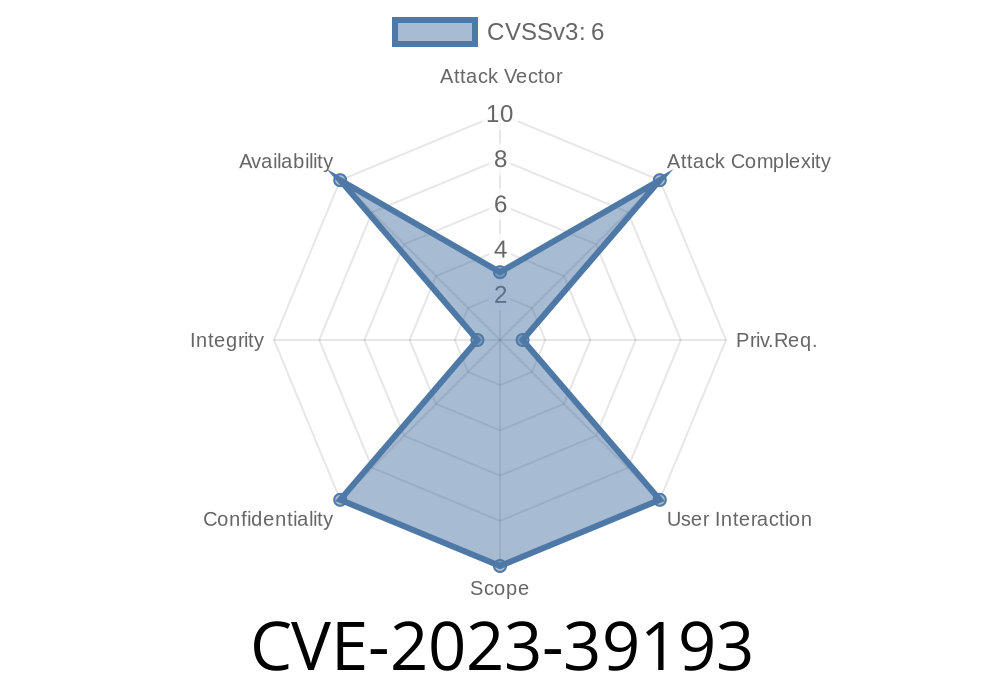In 2023, a critical bug was discovered in the Linux kernel’s Netfilter subsystem, specifically within the sctp_mt_check function. Tracked as CVE-2023-39193, this vulnerability allows local users with certain privileges (CAP_NET_ADMIN) to trigger out-of-bounds (OOB) reads, causing a crash or leaking sensitive information from the system memory. Netfilter acts as the backbone for Linux’s packet filtering, so bugs like this can have wide-reaching impacts.
In this post, we’ll break down what the bug is, how it works under the hood, review the affected code, discuss how attackers could exploit it, and share ways to mitigate or patch the issue.
How Does This Vulnerability Work?
The core problem lies in the way Netfilter parses information, specifically in the sctp_mt_check function. Netfilter uses match extensions to filter packets, and when handling SCTP (Stream Control Transmission Protocol) packets, it has to evaluate certain flags.
The flag_count field in the match structure signals how many flags should be processed in a given packet. But the code did not check if flag_count had a valid or safe value. An attacker with CAP_NET_ADMIN can craft a rule with a huge or invalid flag_count, tricking the kernel into reading beyond allocated memory (OOB read). This can crash the kernel (denial of service) or leak sensitive kernel data back to user space (information disclosure).
Original flawed code (simplified for clarity)
// net/netfilter/xt_sctp.c
static int sctp_mt_check(const struct xt_mtchk_param *par)
{
const struct xt_sctp_flag_info *info = par->matchinfo;
...
// No proper validation of info->flag_count!
for (i = ; i < info->flag_count; i++) {
// access info->flags[i] ...
}
...
}
Because flag_count could be controlled, an attacker could set it *way* higher than the real array size, triggering OOB reads.
Attack Scenario
1. Craft a Malicious Rule: The attacker crafts a Netfilter rule using the SCTP match extension with a bogus flag_count (e.g., xFF).
Insert the Rule: Insert the rule into the kernel using a tool or direct netlink manipulation.
3. Kernel OOB Read: When traffic matches the rule, the kernel reads memory past the allocated flag array, possibly leaking sensitive contents or crashing (panic).
While a full exploit is out of the scope, here’s a conceptual demonstration
# Requires xt_sctp module loaded and SCTP protocol support
# BAD example: super high flag_count (hypothetical netlink tool usage)
# Normally, iptables/nftables prevent obviously wrong values, so exploitation
# would typically involve a custom netlink message
# Demonstrative C snippet (not safe to run, sketch for illustration only):
#include <linux/netlink.h>
#include <linux/netfilter.h>
#include <linux/netfilter/x_tables.h>
// ... other includes ...
void send_malicious_rule() {
// Compose NF message with 'struct xt_sctp_flag_info'
struct xt_sctp_flag_info info;
info.flag_count = 255; // way too high
// Fill flags array with less than 255 elements
// Setup netlink message and send to kernel
}
When processed, the kernel will read past the array’s end, exposing whatever comes next in memory.
References & Additional Reading
- CVE-2023-39193 on NVD
- Kernel patch commit (lkml.org)
- Red Hat Security Advisory
- Upstream fix on GitHub
Patch the Kernel
This flaw is fixed in newer Linux kernels (version 6.7 and relevant backports). Update your kernel as soon as possible. The fix is a simple validation, like:
Restrict Untrusted CAP_NET_ADMIN Users
Only trusted administrators should get this capability. Container breakouts, for example, may seek to elevate and gain CAP_NET_ADMIN.
Monitor for Unusual SCTP Rules
Watch for the loading/insertion of suspicious rules or unexplained crashes.
Conclusion
CVE-2023-39193 is a good example of why *always* validating user input—especially from privileged interfaces—is critical for kernel code. While this bug required CAP_NET_ADMIN (so not anyone could exploit it), the risk of information disclosure or crashes in shared platforms, VPS, or container/cloud deployments is real, underscoring why fast patching matters.
Timeline
Published on: 10/09/2023 18:15:10 UTC
Last modified on: 11/16/2023 01:52:36 UTC
